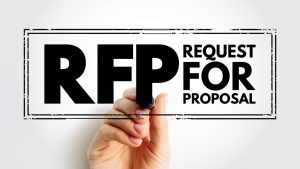The role of using a fairness advisor for the government procurement process is becoming more common as time goes on.
In recent years, a growing number of municipalities have employed the services of a fairness monitor or advisor with respect to major construction procurement projects. Fairness consultants of various kinds began to be encountered in public contracting about 15 years ago. They began to become common first with the growing extent of tender related litigation, and the tendency towards nontraditional forms of government contracting, such as PFI arrangements and privatization.
The fairness role is still in its infancy and as a result, many organizations are struggling to identify when (and whether) a fairness resource is good value for money. However, over the years, the general fairness consultant role has subdivided into three basic streams, these being “fairness monitor”, “fairness advisor” and a third related position as “fairness auditor”. It is important to understand that these roles are distinct.
The most open-ended role is that of a fairness advisor. The role of an advisor is to provide “advice as to a proposed process”, or to provide input into the design of the proposed process, which the recipient of that advice is free to accept or reject. Fairness advisors often participate at the pre-proposal solicitation stage, before any request for tender or RFP is released, giving advice and other input into the design of the overall procurement process, and the options available to attain the desired results. They are a good sounding board for the consideration of whether options are consistent with the key principles of public procurement: openness, transparency and fairness. Depending upon his or her experience, a fairness advisor may offer legal advice, and experiential input.
In contrast, the role of a fairness monitor is to make decisions as to whether there has been compliance with a “pre-defined” set of standards. A fairness monitor only confirms that the process that has been adopted has been followed and is consistent with the terms and conditions governing the RFP or tender. For this reason, they are often engaged after the procurement documents are finalized. Their essential mandate is to sign off only on compliance with the process described in the documents. This is a narrowly defined role.
The key role of a fairness auditor is to review the procurement process on an after the fact basis — as for instance where there is some perception of irregularity — to confirm that a particular procurement was conducted in a fair, open and transparent manner consistent with the terms and conditions of the RFP or tender, and with any applicable law or procurement policy. This type of responsibility is investigative, as it involves a review of the records and interviews with participants to gain an understanding of the steps that were followed in order to confirm the process and outcome were not influenced by any biases.
A fairness monitor is usually an independent consultant who participated in the evaluation and contract award of a contract competition, with a view towards confirming several factors.
In contrast, a fairness advisor is a resource employed by a public contracting authority when designing the terms and conditions to govern a contract competition or the proposed evaluation methods for the competition.
The role of an advisor is an input one only, rather than decision making. The advice provided may relate to what is legally required, or as to whether a particular course of conduct or other action under consideration could lead to legal liability or legal proceedings. Alternatively, the advice may take the form of a best practice guideline. The range of advice offered may extend far beyond the narrow focus of concerns with which a fairness monitor is normally entrusted.
Stephen Bauld, Canada’s leading expert on government procurement, is president and CEO of Purchasing Consultants International Inc. He is also the co-author of the Municipal Procurement Handbook, published by LexisNexis Canada. He can be reached at stephenbauld@bell.blackberry.net.











Recent Comments
comments for this post are closed